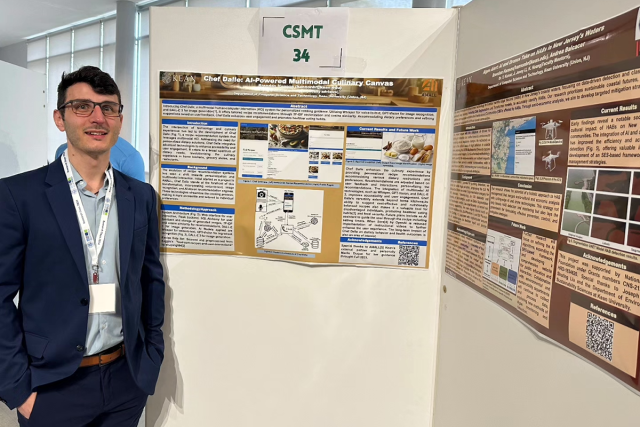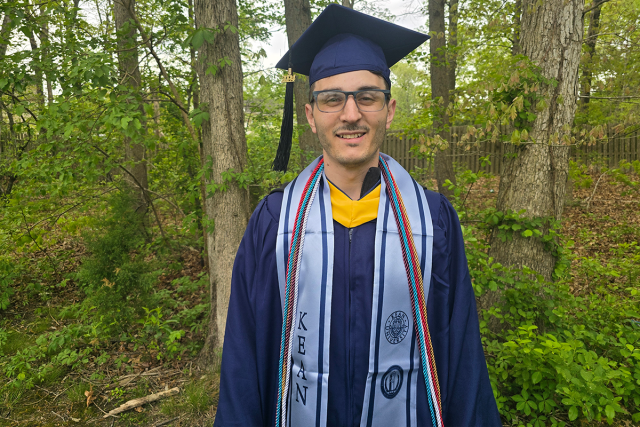Kean Computer Science Graduate Makes Jailbreaking Breakthrough

Brendan Hannon ’24 developed a novel approach to test the vulnerabilities of artificial intelligence, also known as jailbreaking, while studying computer science at Kean University.
The Toms River resident focused his research on so-called ethical hacking, evaluating the ability of AI language models like ChatGPT to block attempts to be used for unscrupulous purposes like credit card scams and stalking.
“Since anyone with an internet connection can access these technologies, it’s vital to ensure they are not used for harmful purposes,” Hannon said. “Through jailbreaking, we document and analyze how these models respond to various prompts designed to test their boundaries. My research contributes so that as these powerful tools evolve, they do so with sufficient safeguards to minimize potential harm.”

Hannon created what he calls the HYP prompt to test the model's difficulty to distinguish between real and fictional contexts.
“It asked the model to describe how a character would hypothetically perform an unethical action, which resulted in detailed descriptions of the actions requested,” said Hannon, who earned his bachelor’s degree this month.
His prompts included requests such as setting up phishing websites, illegal firearm modifications, and even committing genocide.
“The only models we were capable of jailbreaking multiple times were ChatGPT, arguably the best model due to its sophisticated yet less restrictive filtering,” Hannon said. “It shows that while fewer filters can make a model more versatile and responsive, they also increase the risk of misuse.”
Hannon’s faculty mentor, Lecturer Yulia Kumar, Ph.D., ’15, ’16 M.S., calls his approach a breakthrough.
“The guys at the 2023 World Congress in Computer Science, Computer Engineering & Applied Computing (CSCE) were just shocked,” she said.
Hannon presented his research at national conferences and the final version was published in February in Electronics. In all, he authored or co-authored six research papers while at Kean, with a seventh pending.
“We give our students many opportunities to conduct research and present their findings at major conferences,” said Patricia Morreale, Ph.D., professor and chair of the Department of Computer Science and Technology at Kean. “These experiences are crucial for our students’ academic and professional growth.”
Kumar said Hannon is a very capable collaborator, a strong coder who is flexible, open-minded, hard-working and productive.
“He is like a self-driving car. I just gave him a direction on a yellow brick road, and he drove on his own – fast,” she said. “Whether we met or not, there was progress – new test cases, new models, new modalities.”
Hannon calls his work with Kumar “transformative” and credits her and Kean with getting him on track after a false start in college, a car accident and subsequent medical issues derailed his college dream for several years.
“I shifted my focus to computer science and research and reignited my passion for learning and innovation,” Hannon said. “My time at Kean has been as much about personal growth and resilience as it has been about academic achievements, proving that it’s never too late to turn one’s life around and pursue new passions.”
Hannon works full time at Jersey State Controls, a company specializing in building automation. On his own, he is also developing an AI-assisted recipe application, Chef Dalle.
Kumar predicts a bright future ahead for him.
“We definitely can say we prepared this student, already equipped with computer science skills, for an ever-changing industry landscape,” she said. “He will fly.”